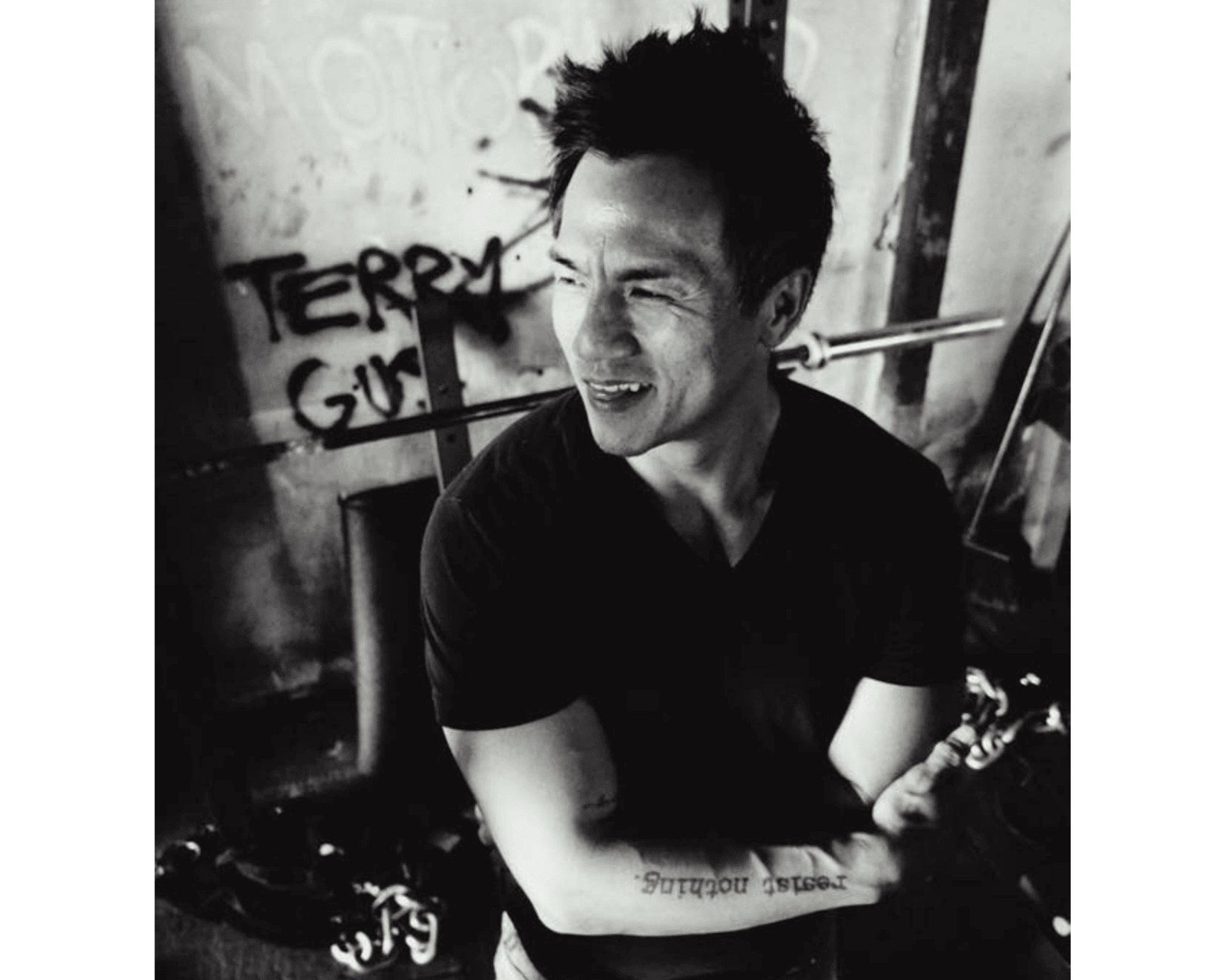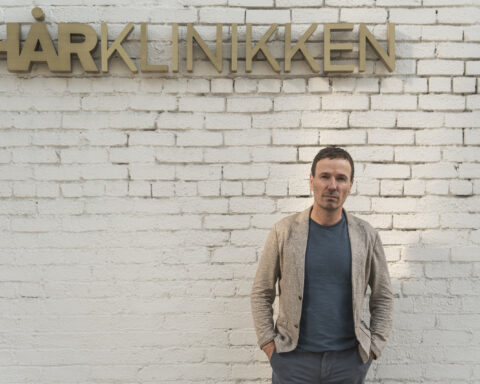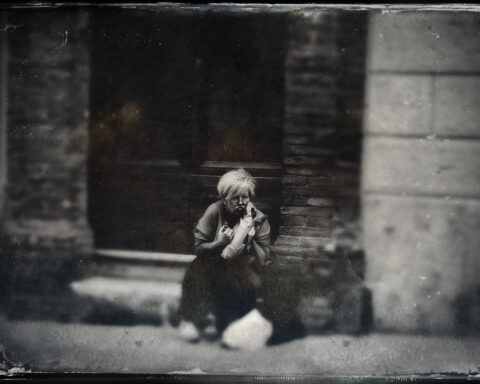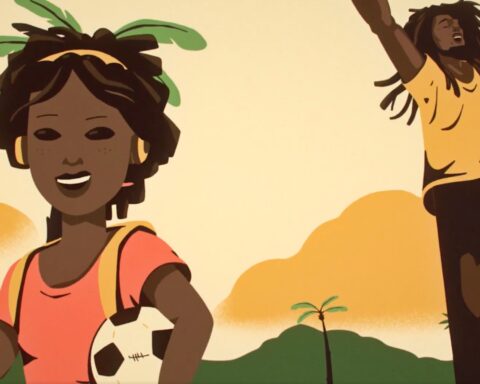It’s helpful to know that our therapists are not perfect. And when they have written a book called ‘I Used To Be A Miserable F***’, then that’s pretty clear from the off.
Former screenwriter John Kim, LMFT — known as The Angry Therapist — retrained in counseling at a point in his life when he was looking to change himself, going through a divorce aged 35 and recognizing he was unsatisfied with his own existence and was, well, pretty angry.
While he was training, John started to blog in the evenings to document his own journey and to see if that could also assist others, and set up his own renegade service that flouted many of the established conventions of therapy. And 11 years later, that has turned into a global self-improvement empire including books, a podcast, digital resources, a texting service and now a dating and wellness app that combines connecting with a partner with connecting with ourselves.
He now has 170,000 Instagram followers and a further 100,000 on Facebook who are attracted by his pragmatic advice, transparent approach and pledge to cut through the bulls***. Offering online courses like ‘No More F****** Excuses’, he leaves us pretty clear where we all stand before we sit on his couch, whether that’s in person or via digital means.
Here John tells his personal story of how he helped himself by helping others, and he talks about his views on the future of therapy in our digital-focused world.

John Kim
Tell us about your story and how you became The Angry Therapist?
For most of my 20s and 30s, I was a screenwriter, and it was very feast or famine. Then about 11 years ago, after going through a divorce, it wasn’t making me happy anymore. So as I was struggling in my marriage, I was seeing my own therapist, and he asked, “What’s next for you? What do you want to do if you can’t write screenplays?” And I said, “I want to do your thing. If I can’t move the masses, I want to help people one at a time.”
I got a divorce and was kind of left with nothing; I was broke, had no sense of self, no friends and felt very disconnected. So I went back to school, and that was the beginning of this very long journey.
I started a blog on Tumblr, which is where you did it at the time, called The Angry Therapist. I didn’t think anyone would read it, but I think it took off because I pulled the curtain back. I just said, “I’m a therapist in training, my heart’s broken, I have issues. And how can I help you?” And so I started documenting. I think now people are showing that they’re vulnerable, but then people were not showing themselves.
And from that emerged book deals, a full practice, life coaching and various products, and now I have some TV stuff that I’m working on. So it’s been pretty amazing, just documenting and going on my own rebirth.
What they don’t tell you about being a therapist, is that after you get your masters you have to get 3000 hours [of practical experience]. And that takes a long time. So I was working in non-profits, working in addiction, as a school counselor, I was working all over the place. And then when I came home, I would get on the computer blog and help people in unconventional ways, ways that you weren’t supposed to help people. Because at the time, as a therapist, you weren’t supposed to use the internet, you weren’t supposed to use webcams, because you were only supposed to see people in your state. And I disagreed with that.
I thought the internet could be an amazing tool. So I called myself a coach and I started seeing people all over the world through webcams. And this was when it was all dial-up and the webcam was something you had to plug into a computer. I started to meet people at coffee shops, and on walks around lakes, I never had an office.
And as I was becoming a therapist, working with addicts and all of that, I was also documenting my own journey and crossing that great divide from boy to man. And the sessions I was doing gave me a lot of revelations about what I needed to do in my own life.
Why The Angry Therapist? What does that mean and how does it manifest itself in your own behavior and how you help people going through their own issues?
I was a boy, I was reactive, and I was angry because I wasn’t happy. I was chasing shiny things, and didn’t have a sense of self. I grew up in LA, and in my 20s, my definition of success was the house in the hills, the Range Rover and Porsche combo. I mean, still love cars, and if I ever buy a Porsche one day people will think I’m a hypocrite. It’s not that, it’s that I try not to tie my worth or happiness to the external things anymore. But back then it was that whole image of success which is very commercialized. And because I didn’t have those things, I didn’t allow myself to be happy. So I would just grind, spend 13 hours a day at Starbucks trying to write clever dialogue and trying to sell the screenplay, hoping that that would make me happy and none of it did.
I learned that I had a crack in my life container, I learned that I was disconnected with self. I tell people that self betterment is more about a reunion than anything else. So I thought, “What does it look like to connect back to me?” And so I got some tattoos, I bought a motorcycle, I discovered CrossFit and I did things that lined up with my truth. I built some self-esteem and I started helping other people, which is bigger than me. I was single on purpose. And then, after five or six years, magically stars kind of lined up and I got a book deal and I was very blessed to be able to take my concepts and share them with the world through three books. The first book was ‘The No BS Guide To Finding and Living Your Own Truth.’ The second book was ‘I Used To Be A Miserable F***.’ And then the third book comes out in January and is called ‘Single On Purpose.’

John and his Indian Springfield Dark Horse motorbike
So are you still single on purpose? And what does that mean?
No, I’m in a relationship, I live in the hills of Altadena and I have an eight-month-old child and two chickens. It’s not an anti-relationship book, it’s a pro relationship with self. So treating people, mostly women, I realized they were so depressed and frustrated, and especially today with the toxic swipe culture, we turn into baseball cards. The way that we meet people, there’s a lot of false advertising, there’s ghosting, there’s d*** pics. And I think that we’re programmed that if we’re not finding love, there’s something wrong with us. So the book is all about how it’s OK to be single. It’s OK to connect to yourself first, until you find someone that deserves you.
You have a huge presence on social media, a texting service, and these snappily-titled books. What do you think about the future of therapy and these new ways to help and connect with people?
I think we live in a very exciting time in therapy and self development. Psychology hasn’t ever had a shake up until now. And what I love about today is people are more interested in who you are than the letters after your name. So because of the influencers and social media, because now we have a direct conduit into people’s homes, it requires us to be vulnerable, it requires us to show ourselves, it’s like they want to know who their therapist is. We’re no longer a cardboard cutout. The world has forced us to humanize ourselves, which I think is great. We can’t hide anymore.
So how many people do you think you’re reaching with your content overall?
I don’t like to dwell on a number, but with the books, Facebook and Instagram and my podcast, I’m sure millions. And yeah, that it’s terrifying, it’s intimidating. But it’s also powerful, I think. Because someone like me, I’m not anyone that’s famous. I’m just some guy who started — with a broken heart — creating content in his kitchen. And so I think there’s so many out there now, with their platforms, creating really important conversations, and the internet has empowered so many people.
Can you tell me any particular stories of people you’ve affected positively? Because that must be the most rewarding part of the job.
What’s interesting about working online is that people fall from the sky. I’ve helped high class escorts who fall in love with their john. I’ve had one person who called me and he wanted to take his life and he said, “I relate to you, also being Asian American. You’re the last attempt.” I was like, “Oh, my God. I don’t want that.” But that turned out really well. And then, everything from working in rehabs, from non-profit to Malibu high-end, to eating disorder clinics, and mostly relationships, so a lot of mainly women who are in their 30s and sick of the toxic, dysfunctional relationships that they’ve been through and now wanting to build a better, healthier love.
So what’s next for you?
I am waving this flag of our toxic swipe culture. I have a new dating app called Twirl, and it’s anti-swiping, video only. And it’s been really exciting to see people actually showing themselves, and so instead of just swiping and using filters, they come as they are. Half of it is where you grow; there’s experts like relationship coaches and therapists, giving tips and snippets of therapy, so as you’re connecting to other people, you’re also connecting yourself. And then the way that you meet people is just answering questions via video. So even though it’s an app, and it’s very analogue in that the process of meeting someone’s like talking to them at the supermarket or coffee shop, instead of swiping them.











